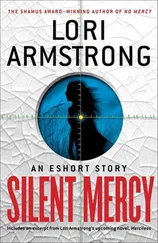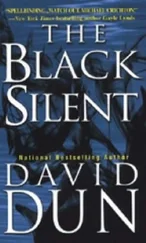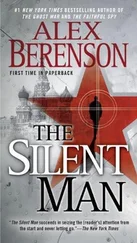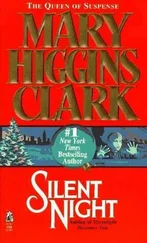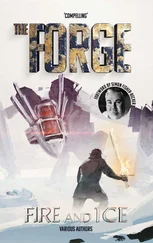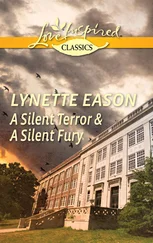She pulled herself back to the present. She needed to be alert, she realized as she looked into the cold eyes of the man on the other side of the table. She’d answered questions the night before about finding Emma, but he went over those again, clearly unhappy with parts of her story. Suzanne found she couldn’t account for her decision to investigate the wheel. To her, it was as obvious as looking round if someone shouted Watch out! but he seemed unable to understand or accept this.
‘So it wasn’t easy to get into the yard,’ he was saying again.
‘No, I had to climb over the fence.’
‘Over those railings? That’s a dangerous climb.’
That was true, it had been. Suzanne wondered why she hadn’t thought about that before she climbed – she’d just done it. McCarthy hadn’t actually asked her a question, so she said nothing. After a moment, he said, ‘What I’m trying to establish, Mrs Milner—’
‘Ms,’ Suzanne interrupted. She saw his eyes appraise her briefly, dismissively. She remembered Joel watching her in the kitchen that morning.
‘ Ms Milner, is why you went to all that trouble unless you had a reason to think something was wrong.’
‘Do you always know why you do things?’ She regretted the question as soon as she’d asked it. It made her sound defensive. He had a habit, she noticed, of not replying, of not acknowledging something that was said. He was leaning back in his chair, staring Suzanne in the eye, as though he expected something else from her. She could feel her breathing start to get uneven, and tried to distract herself, to make herself relax. She studied her hands. Her nails were OK apart from the one she’d bitten down yesterday. There was some dirt caught under her thumb, and she tried to scratch it out. She was glad she’d taken the time to put some varnish on. It made her feel more confident for some reason. Her breathing steadied, but she was still unable to think of an answer to his question. ‘I don’t know …’ she said in the end, in the absence of anything else to say. She saw his face harden slightly, and reinforced her answer. ‘I don’t know. You know what was happening. Maybe I thought it was something to do with Lucy.’
‘Did you think that?’
‘I don’t know.’ Impasse. He waited in silence. She felt the pressure building up again. She half expected to see, across the desk, the woman who had talked to her, that last time, about Adam. We want to help the lad, Suzanne. She deliberately began a mental review of the scale for testing communication that she’d been adapting for use at the Alpha Project. You asked a series of questions that had fairly obvious answers, then tested the responses you actually got against a checklist: No response. Contextually inappropriate response – like Ashley when she was asking about his family … It was strange, the way Ashley had reacted in the interview. She tried to remember if he’d shown any signs of those odd responses when she’d been talking to him in the coffee bar …
‘… in the yard, Ms Milner?’
‘Sorry. Could you just …’
Again that slight hardening of the face, which she could understand this time. She should have been paying attention. It made him seem a bit more human. ‘Did you see anything that might have made you think something was wrong in the yard?’
‘Right. Sorry. I’m a bit tired.’ She tried a smile. There was no reason to be antagonistic, she told herself. This wasn’t to do with Adam. He didn’t respond, but waited for her to answer. But not that human. ‘Well, not that evening, I mean apart from, you know …’ Oh, for Christ’s sake get on with it, Suzanne! ‘I mean … are you asking about the evening, or the morning?’
‘You were in the park yesterday morning?’ She realized then that she hadn’t told them. She’d let them think that her evening visit was her only visit to the park that day. His voice was neutral, but she thought she could detect exasperation underlying it. She felt stupid, but she felt angry as well. Didn’t he understand? Was he so used to violence, to sudden death, that he just went on like an automaton, and expected everyone else to be the same?
‘Yes.’ There didn’t seem to be anything else to say.
‘What time?’
Suzanne thought. ‘I went into the park about half past nine, and I got home at around ten-thirty. I go running. Jogging. I went through Endcliffe Park, and then I crossed over the main road and went on through Bingham Park.’ She went on to tell him about the notice she’d seen.
He let his exasperation show now. ‘Why didn’t you tell me this yesterday?’
She felt her face flush. She hated to be caught out. ‘It just … The whole thing. Lucy. I couldn’t think of anything else.’
He nodded, clearly unsatisfied, and went back to the notice. He seemed as puzzled by it as she had been, and asked her about people in the park, people she saw regularly, any problems with flashers, any other odd or worrying people, anything. She found herself saying No … no … no, never … no.
Then she told him about the wheel yard, about the gate being open, about her visit to the wheel. His face didn’t change, but she felt as though she could read the thoughts behind those expressionless eyes. She stepped hard on her desire to apologize, to explain, and tried to go through her story calmly and clearly. He took her over and over it. She closed her eyes, trying to make the picture clear. ‘It was my reflection,’ she said. ‘I waved at it, and it waved back.’ The sinister, farcical picture of Emma, dead, waving back at her disturbed her equilibrium further, and her voice tailed away in her explanations.
It seemed it was almost over. She began to relax now that he wasn’t pushing her for information she didn’t have, wasn’t asking her questions she couldn’t answer, wasn’t making her feel like a culpable fool for keeping information back. It was important to explain that she hadn’t seen either Lucy or Em, but she needed to tell him about the man – the youth? – she had seen near Shepherd Wheel. ‘I only saw one person in that part of the park.’ She sent her mind back to the odd, jumpy feeling the figure had given her. ‘I thought it was someone I knew at first, but …’
‘Who was that?’ McCarthy’s tone was bland, but she knew at once she’d made a mistake.
‘Oh, it wasn’t,’ she said quickly. Too quickly. ‘I just thought it was. At first.’ She could feel her chest start to tighten and the air she was breathing becoming thin and insubstantial. She concentrated. Breathe slowly, evenly. Keep calm. I hold you responsible for this! Her father’s litany. McCarthy just went on looking at her. More prevarication would only make it worse. After all, it hadn’t been Ashley. Her voice came out in uneven jerks, and she had to stop speaking and gulp for air. ‘Just for a moment. I thought … it was Ashley Reid … from the Alpha Project … only it wasn’t …’ It couldn’t have been more unconvincing if she’d deliberately lied.
McCarthy was working through the computer files. He was angry, and he wanted to talk to whoever had interviewed Suzanne Milner the evening before. He should have done it himself. But they had the information now. At around a quarter past ten, the wheel yard had been open, and someone, a young man answering a particular description, had been around there, actually coming from the direction of the yard.
He was puzzled as well as angry. He was good at reading people in interview situations, but Suzanne Milner had been strange. Yesterday she’d been fiercely protective of her friend, later she had been almost flattened by shock. Today she had presented the façade of a carefully groomed academic and had managed to get right up his nose. She’d come in, a picture of cool elegance, very different from the old-jeans-and-sweater image she’d projected yesterday. At first he’d interpreted her attitude as hostility. She’d sat there straight-backed, tilting her head and studying her fingernails before she answered each question, shooting quick glances at him and looking away as soon as he met her eyes. She seemed to be treating the whole thing as a game, giving him minimal, uncooperative answers to the questions he needed answering.
Читать дальше

